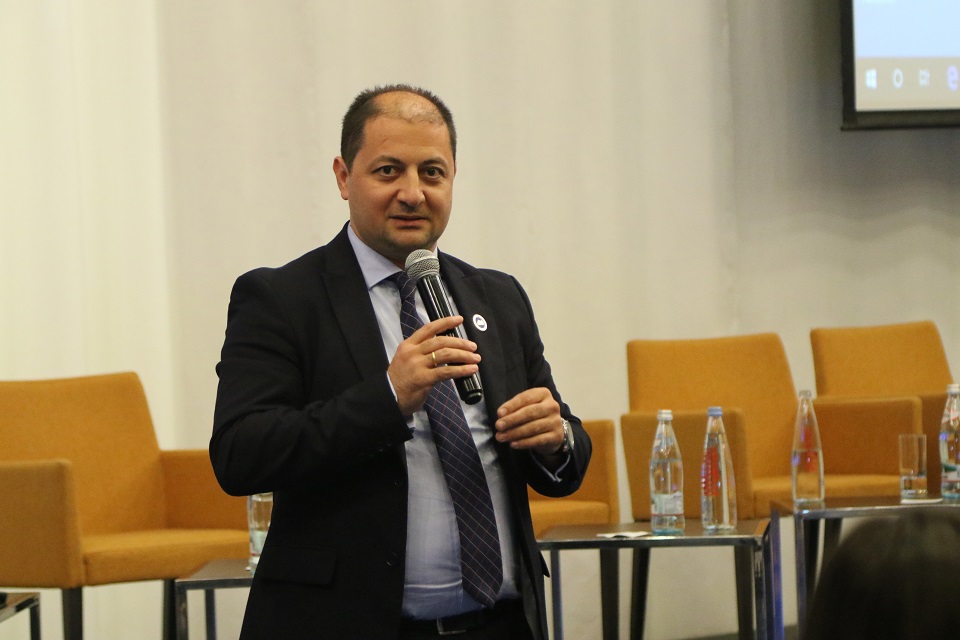Geostat adopts its first-ever Strategy for Gender Statistics
Date:

Gender statistics are essential for making gender inequalities visible, for measuring and monitoring progress towards gender equality and for informing policymaking. The UN Women Georgia Country Office has been supporting the National Statistics Office of Georgia (Geostat) in improving the availability of gender data for better policymaking.
In line with these efforts, in October 2021, Geostat with the support of UN Women adopted its first-ever 2021–2023 Strategy for Gender Statistics. The document builds on the 2020–2023 National Strategy for the Development of Statistics in Georgia (NSDS) and aims to define Geostat’s strategic vision and priorities for the development of gender statistics in line with international and national benchmarks.
“The Strategy for Gender Statistics is based on the 2020–2023 NSDS, in which the improvement of gender statistics is an important direction,” remarked Mr. Gogita Todradze, Executive Director of Geostat. “It aims to elevate gender statistics at a higher level as a vehicle through which all remaining challenges can be identified and addressed. With the Strategy for Gender Statistics, Geostat will better address the needs-based demand for high-quality official gender statistics.”
Key priorities under the newly adopted strategy include producing high-quality and demand-driven gender statistics; strengthening the capacity, coordination and financing of gender statistics production and use; and enhancing the dissemination and usage of gender statistics. The document was developed as a result of a participatory process involving consultations with all relevant stakeholders and is further informed by key international frameworks including Georgia’s commitments under the Convention on the Elimination of All Forms of Discrimination against Women, the Beijing Declaration and Platform for Action and the 2030 Agenda for Sustainable Development.
In recent years, Geostat has undertaken significant steps towards mainstreaming gender in its work. The effort includes establishing the gender data portal, developing the annual publication “Women and Men in Georgia” and conducting the National Study on Violence against Women in 2017 and the ongoing Time Use Survey, to be finalized in 2022.
The initiative was supported within the framework of the “Good Governance for Gender Equality in Georgia” project generously funded by the Ministry of Foreign Affairs of Norway.